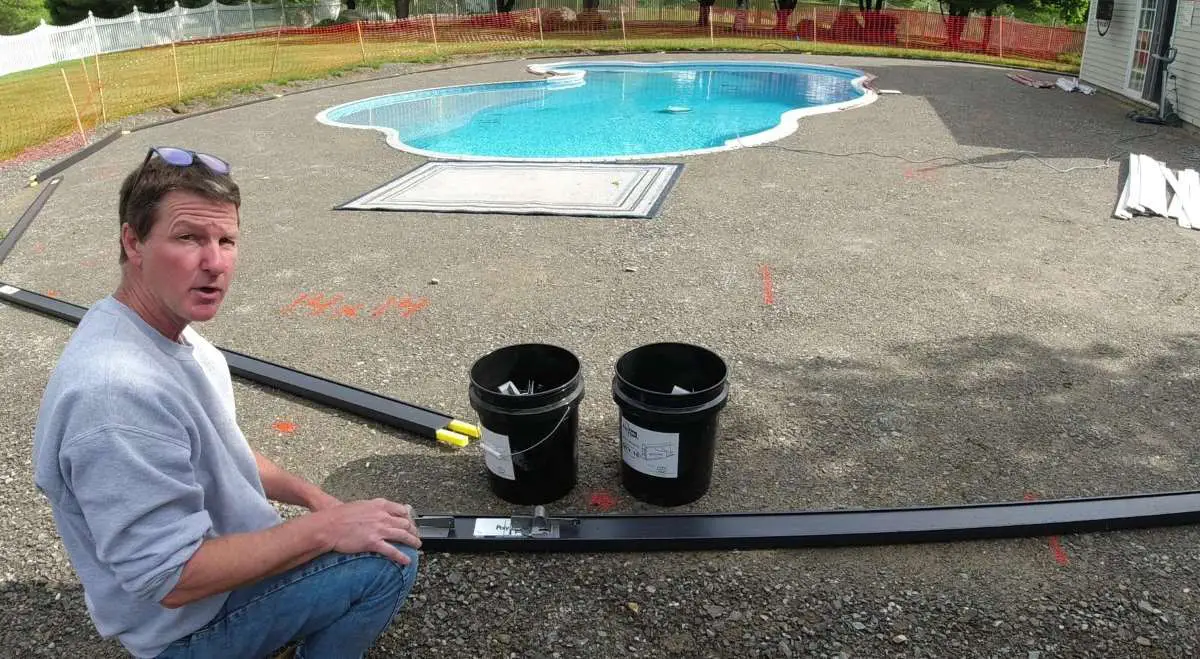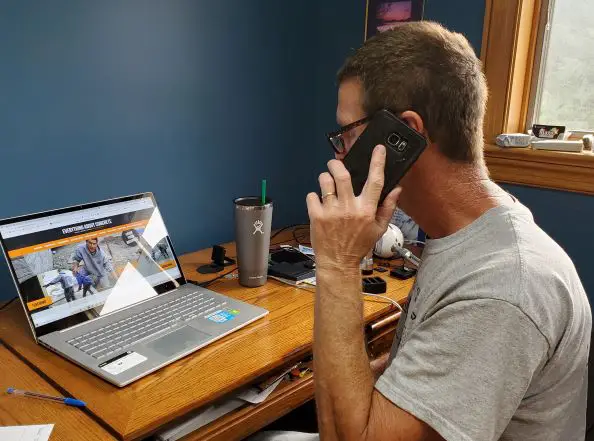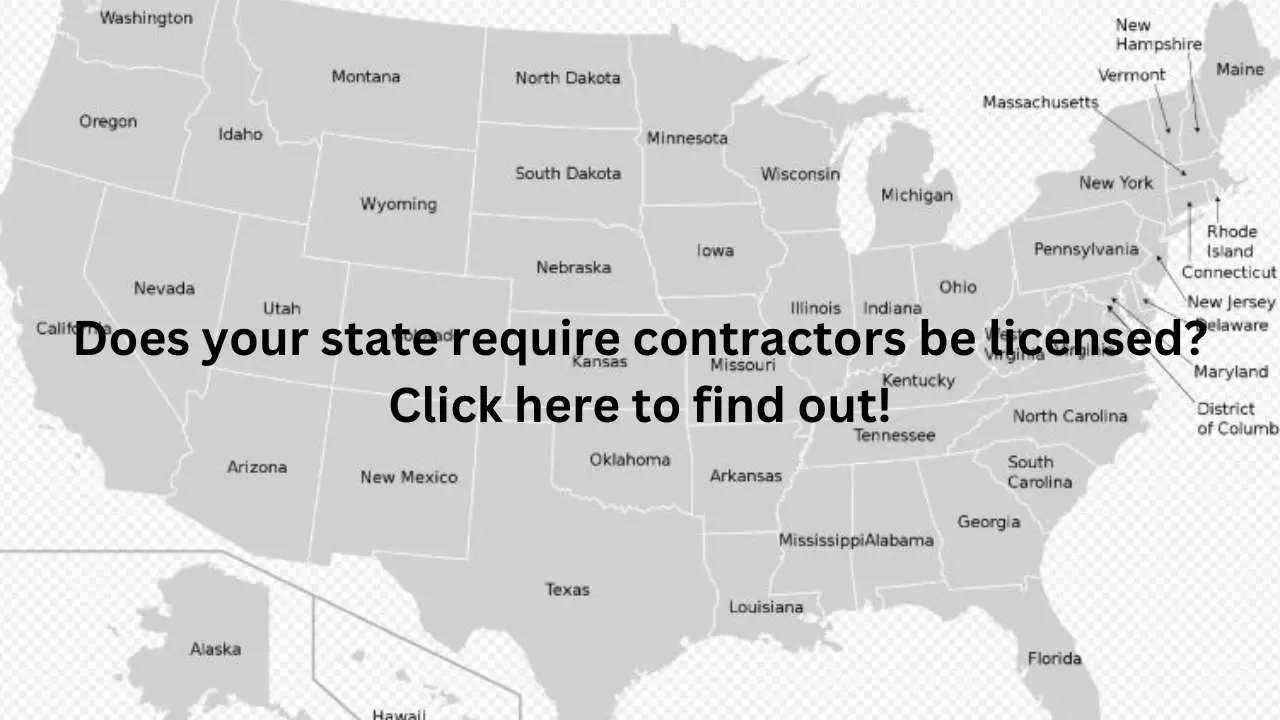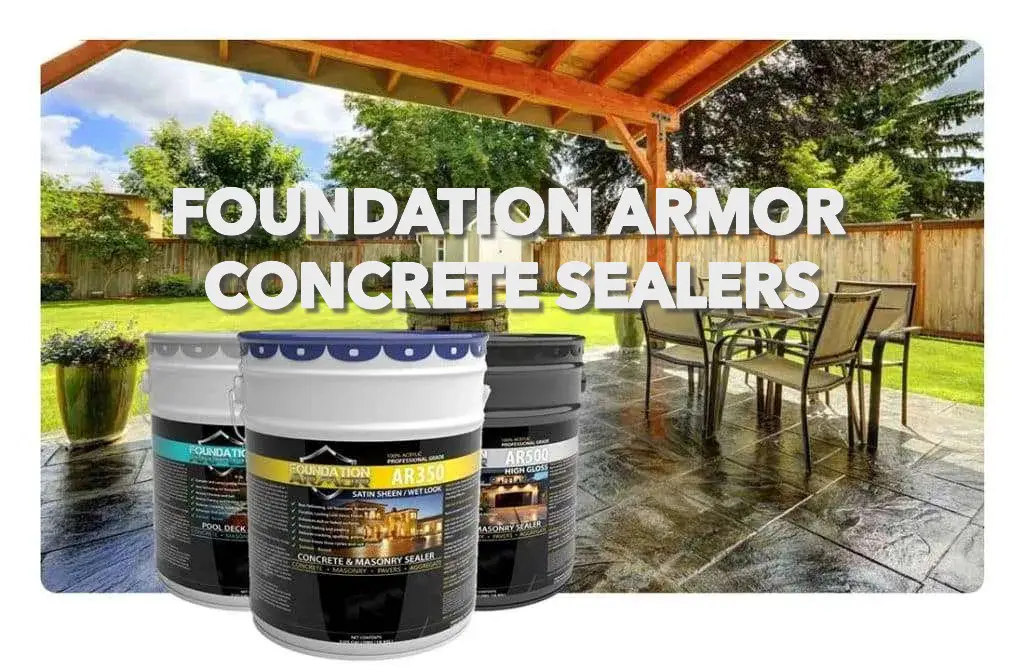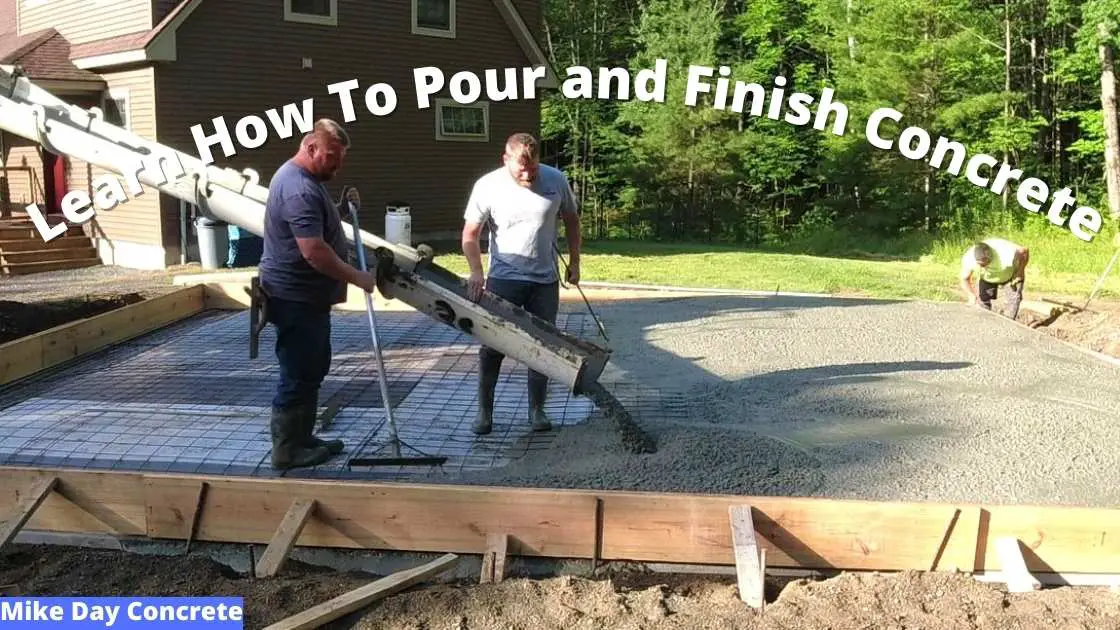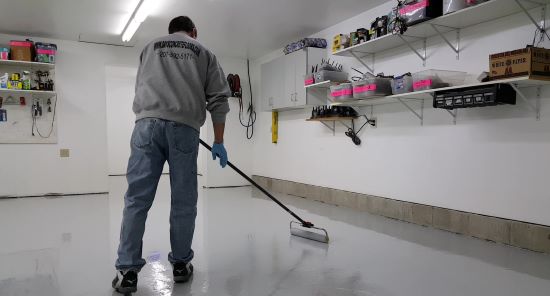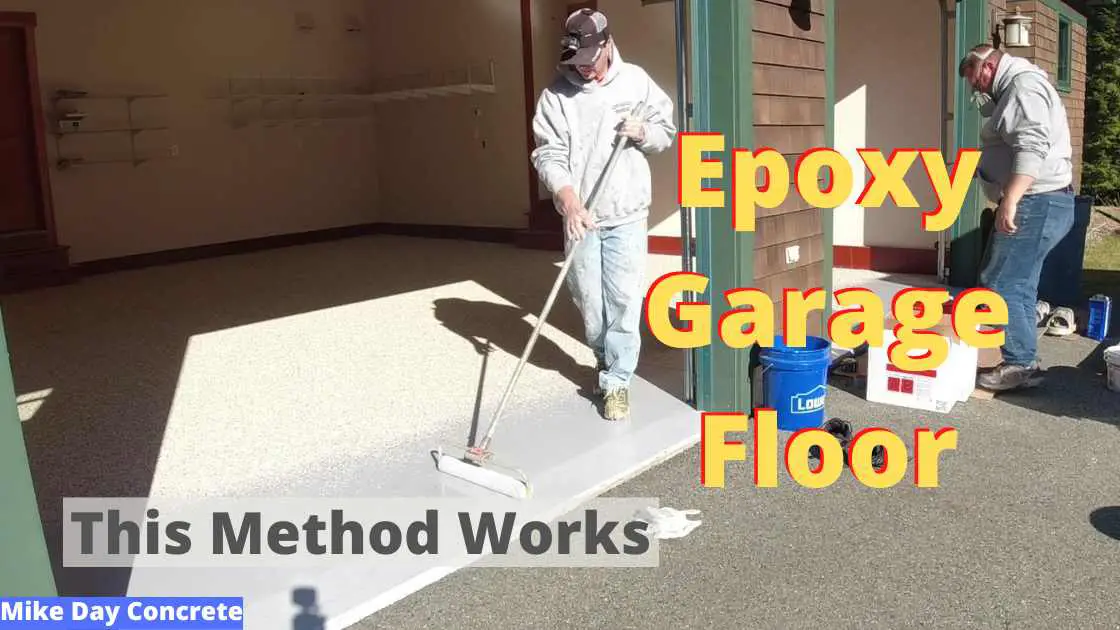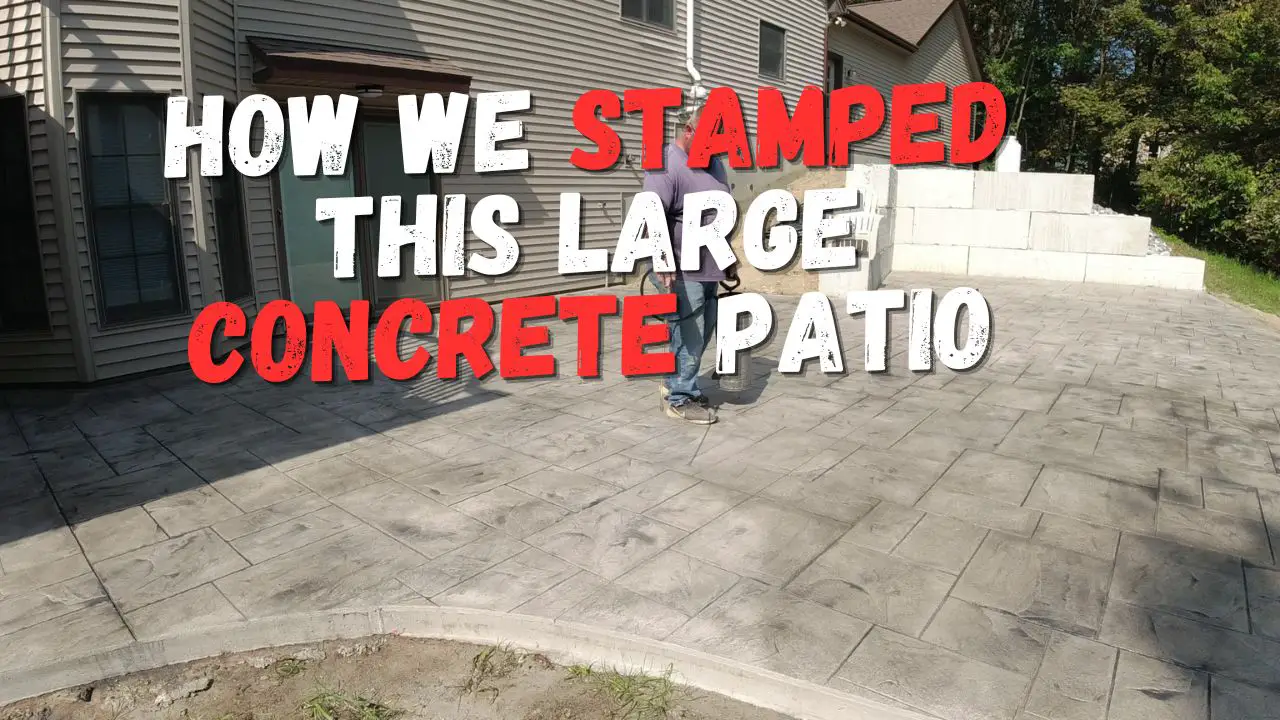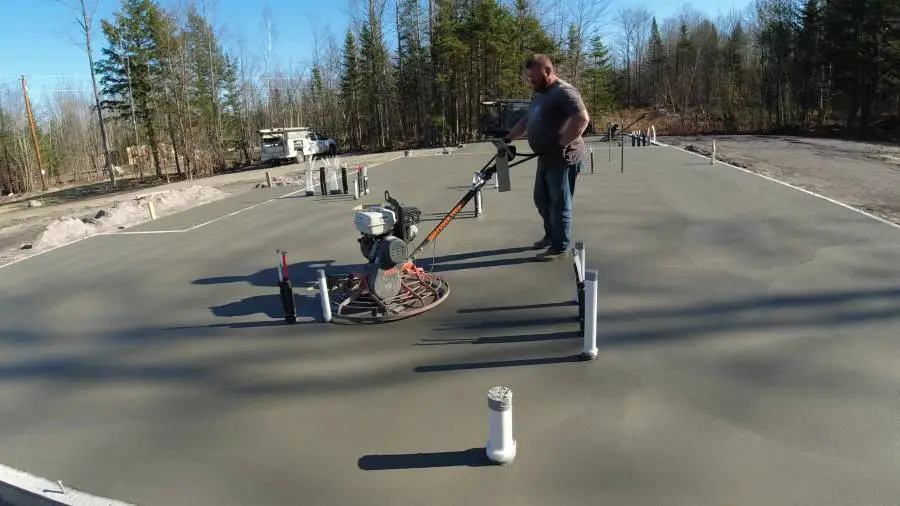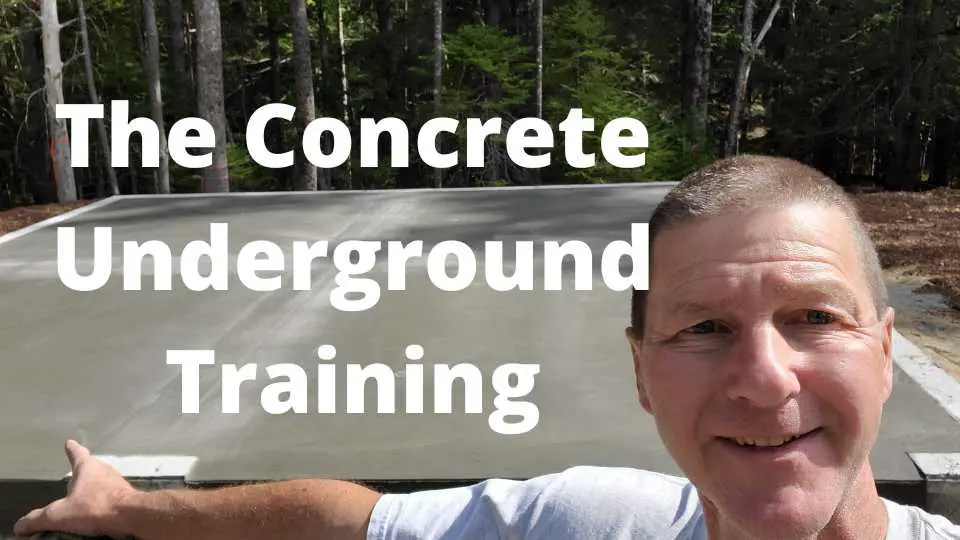How to Find a Good Concrete Contractor:
An Expert's Guide for 2025
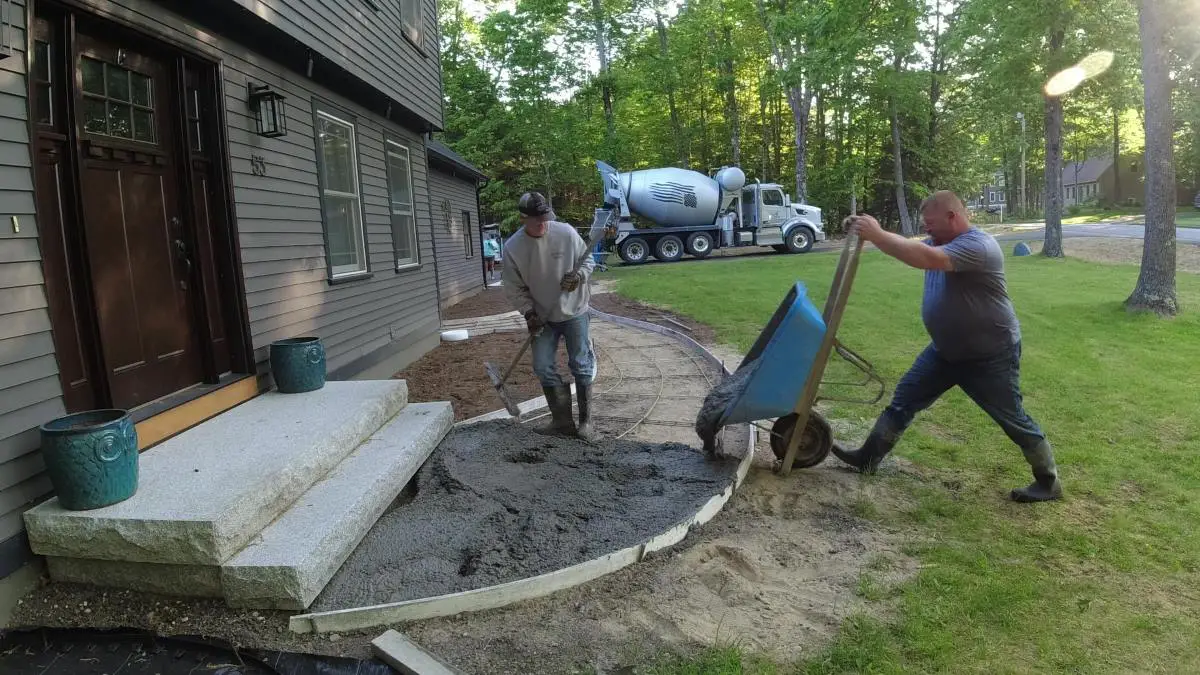
Hiring the right concrete contractor can mean the difference between a long-lasting, durable project and one that needs costly repairs down the road.
As a seasoned concrete contractor with years of experience in concrete repair, overlays, sealing, and demolition, I've seen firsthand what separates a reliable professional from a subpar one.
This guide will help you make an informed decision when choosing a concrete contractor for your next project.
At Day's Concrete Floors, INC. People hire me because I've earned a good reputation for doing excellent concrete work over the years.
I've been doing concrete work for some contractors for over 30 years. They keep calling us back because they know we do good work.
Homeowners find me mostly from word of mouth referrals or looking online at my website and social media. All my work is out there for display and for people to look at.
1. Look for Experience & Specialization
Not all concrete contractors have the same expertise. Some focus on driveways, while others specialize in foundations, decorative concrete, or structural repairs.
Here’s what to check:
- Years in business: At least 5-10 years shows stability and experience.
- Portfolio of work: Ask for photos or visit past projects.
- Specialization: If you need stamped concrete, make sure they have experience in decorative work.
Red Flags:
❌ No website or portfolio ❌ Only offers one type of concrete work ❌ New or unverified business with no reviews
2. Verify Licensing, Insurance, & Certifications
A legitimate contractor should have:
✔ A valid business license
✔ General liability insurance & workers' compensation
✔ Certifications from industry organizations (ACI, NPCA, etc.)
WHY THIS MATTERS:
- Licensed contractors follow local building codes.
- Insurance protects you from liability in case of accidents.
- Certifications indicate a commitment to industry standards.
3. Read Online Reviews & Ask for References
Check multiple sources for reviews:
- Google Reviews
- Better Business Bureau (BBB)
- Local Facebook groups
- Houzz, Angi, or Yelp
What to Look for:
✅ Consistently positive reviews over multiple years
✅ Customers praising professionalism, quality, and timeliness
✅ Contractors responding professionally to negative feedback
What to Avoid:
❌ Complaints about poor workmanship or unfinished jobs
❌ No online presence or reviews
❌ Reviews that seem fake or overly generic
4. Get Multiple Bids & Compare Pricing
Don't settle for the first estimate. Get at least 3 quotes and compare:
- Materials: Are they using high-quality concrete mixes?
- Scope of work: Do bids include site prep, finishing, and cleanup?
- Warranty: Does the contractor offer a workmanship guarantee?
⚠ Warning: The cheapest bid is often NOT the best. Low prices can mean low-quality materials or inexperienced labor.
5. Ask the Right Questions
Before signing a contract, ask:
- How many similar projects have you completed?
- What’s your estimated timeline?
- Who will be on-site managing the job?
- What type of concrete mix will be used?
- What’s the payment schedule?
A good contractor will have clear, confident answers. If they’re vague or hesitant, reconsider your choice.
6. Understand the Contract & Payment Terms
Your contract should include:
✔ Total project cost & payment schedule
✔ Detailed project scope & timeline
✔ Materials & labor breakdown (Optional)
✔ Warranty details
Payment Tips:
- Avoid paying 100% upfront.
- A 10-30% deposit is reasonable, with progress payments as work is completed.
- Use checks or credit cards instead of cash for payment tracking.
7. Watch for These Red Flags
🚩 High-pressure sales tactics 🚩 No written contract or vague terms 🚩 Unwilling to provide references or proof of insurance 🚩 Extremely low prices compared to competitors 🚩 Asking for full payment before starting work
Final Thoughts: Finding the Best Contractor for Your Project
The best concrete contractors are professional, experienced, and transparent about their work.
By doing your research, verifying credentials, and comparing bids, you’ll avoid common pitfalls and ensure your concrete project lasts for decades.
Want to ensure your concrete project is done right? Use this guide to vet potential contractors and hire with confidence.
Bonus Tip: How to Find Local Concrete Contractors
- Search Google for "best concrete contractor near me"
- Check local business directories like Angi and BBB
- Ask friends, family, or neighbors for recommendations
- Visit job sites in your area and talk to homeowners
- Call a local ready-mix company and ask for good contractors
A little due diligence upfront can save you thousands in repairs later. Choose wisely!
should you get a contract in writing?
Yes, a good concrete contractor will give you a written contract.
do all states require a concrete contractor be licensed?
The licensing requirements for concrete contractors vary by state in the United States. While many states do require concrete contractors to be licensed, not all states have this requirement.
Some states may require licensing at the state level, while others may have specific licensing requirements at the local level, such as a county or city license.
Additionally, the specific requirements for obtaining a concrete contractor license may differ from state to state, including the education and experience requirements, exam or test requirements, and other qualifications.
It's important to check the licensing requirements in your state or local area before hiring a concrete contractor to ensure they are properly qualified and licensed to perform the work.
There are some very good concrete contractors who aren't licensed because their state doesn't have that requirement.
Check to see if your state requires a contractor to be licensed.
a good concrete contractor will have these types of insurance
The minimum insurance requirements for a concrete contractor can vary depending on the state and the type of work being performed.
However, in general, there are three types of insurance that most concrete contractors should have:
- General Liability Insurance: This type of insurance provides coverage for property damage or bodily injury that may occur during the course of the project. The minimum amount of coverage required can vary by state and can range from $100,000 to $1 million or more.
- Workers' Compensation Insurance: If the concrete contractor has employees, they may be required to carry workers' compensation insurance. This insurance provides coverage for work-related injuries or illnesses that employees may experience while working on the project.
- Commercial Auto Insurance: If the contractor uses vehicles for work purposes, they should have commercial auto insurance to cover any accidents or damages that may occur.
In addition to these three types of insurance, some states may require additional insurance coverage for contractors, such as professional liability insurance or surety bonds.
It's important to ask any concrete contractor you plan to hire to provide you with a certificate of Insurance that proves they have insurance coverage.
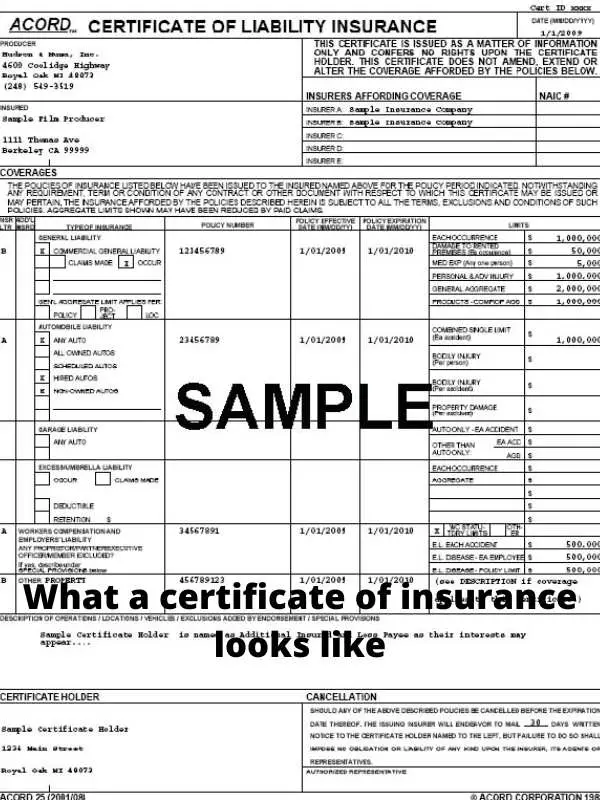
Check out more Questions people have about concrete
